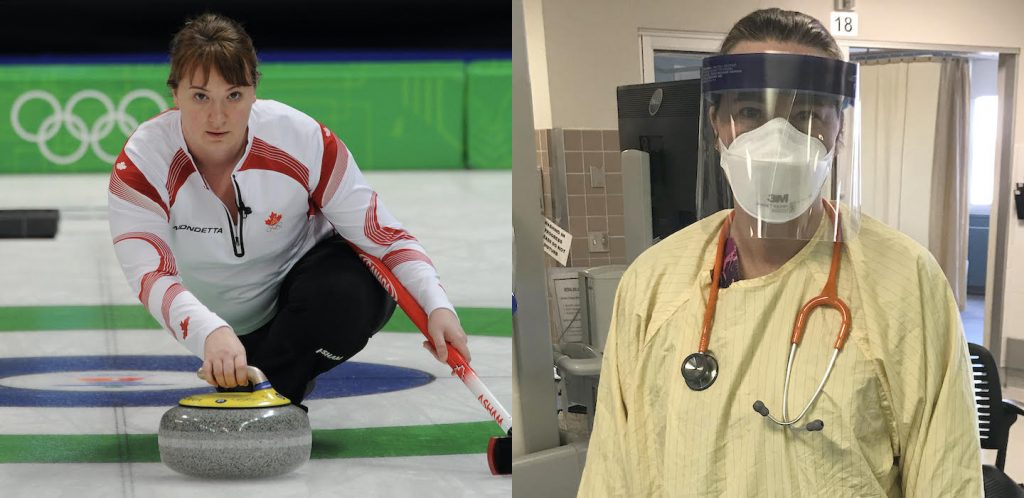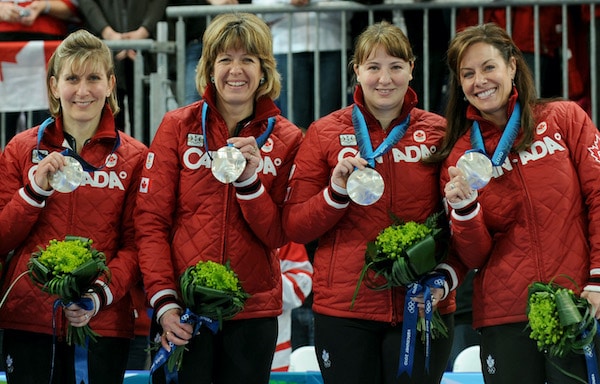Stay safe

Working on the front lines of the pandemic
By Susan O’Connor
I am a mom, a curler, an Olympian, and a Respiratory Therapist.
You know all about the first three, but the last one might be new for you (although we’re certainly getting more attention over the past few weeks).
I’m often referred to as a nurse; I usually just roll with it because it’s easier than explaining otherwise, and, quite frankly, I think nurses are rock-stars and there are worse things to be mistaken as.
Respiratory Therapists work all over in the health-care system, from neonatal (working with newborns) to palliative (essentially, improving quality of life and reducing suffering for patients with life-threatening illnesses) care; in hospitals, community clinics, and pulmonary function and sleep laboratories.
But just let me highlight what it means to be a Respiratory Therapist in the context of this pandemic.
My office is the head of the hospital bed. That’s the danger zone in these times. We will be coughed on.

When you come to the hospital coughing and short of breath, we will be called to provide oxygen and other therapies to get your oxygenation improved and ease your efforts to breathe.
If your breathing continues to deteriorate, we will assist in intubating you (put a breathing tube down your trachea); in some parts of the country, we are the ones who actually do it.
We will manage your airway and the ventilator helping you breathe, suction the secretions from your lungs, and provide inhaled medications.
We will be the ones who remove the tube — either because you have recovered or we have lost the battle. Usually when you take someone off the ventilator at end of life, they are surrounded by family and love. It’s very emotional to be involved in such an intimate moment. But I wonder what it will be like to do it to a patient who is all alone. Will I be able to sit with them while they pass or will I be called away? If it were my parent, sibling, or spouse I’d want someone to be there with them. What if it were yours?
These are the sort of things that keep me up at night, along with concern that we won’t have enough equipment to treat the number of patients that are coming as this pandemic proceeds.
Will there be enough PPE (personal protective equipment) to keep myself safe?
Will I get it? Will it kill me?
The stats on this coming out of Europe, and now the United States, of health-care workers affected are concerning. This is not just affecting the elderly. People my age and younger are critically ill in our country right now. Will I bring it home to my family? How many weeks or months will it be before I feel comfortable cuddling my little boy?
Here’s where all those years of sports psychology come in handy. You have to let go of outcome-based thinking and focus on what you can control.
These days I feel a bit like I’m preparing for a big championship. This is the calm before the storm. I want to head into this as mentally and physically healthy as possible. This means proper rest, nutrition and hydration.
At work, we are preparing. We practise simulations of how to do procedures with as few people possible so as to limit the number of staff exposed. We are emptying entire units so we can create more space to treat COVID-positive patients in a critical care setting. We are learning newly purchased ventilators — all while dealing with the usual workload.
So I beg you, please take this seriously. Stay home when you can. Catch up on rest, start that project you’ve been putting off. Reach out to that friend you’ve been meaning to catch up with. Technology is a life-saver these days. Spend quality time with your family. Snuggle up with your kids. You probably don’t realize it, but being bored is a luxury.
Stay safe, stay healthy.
(Susan O’Connor won a silver medal for Canada at the 2010 Winter Olympics in Vancouver, playing vice-skip for Cheryl Bernard; she is in her 20th year as a Respiratory Therapist in Calgary).




